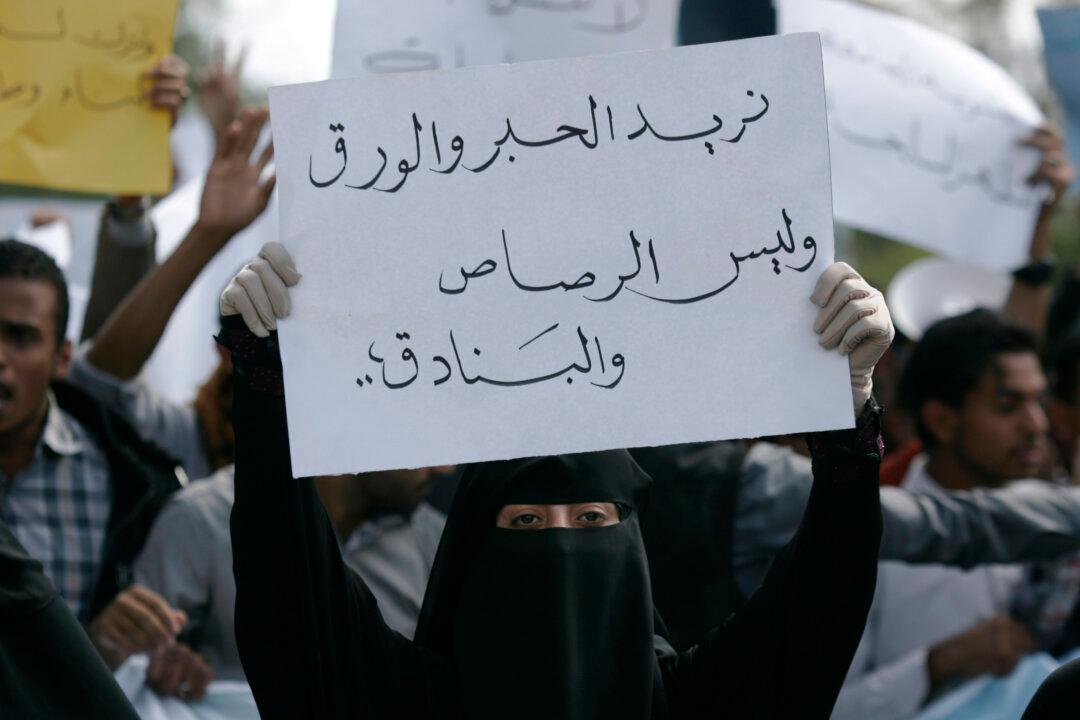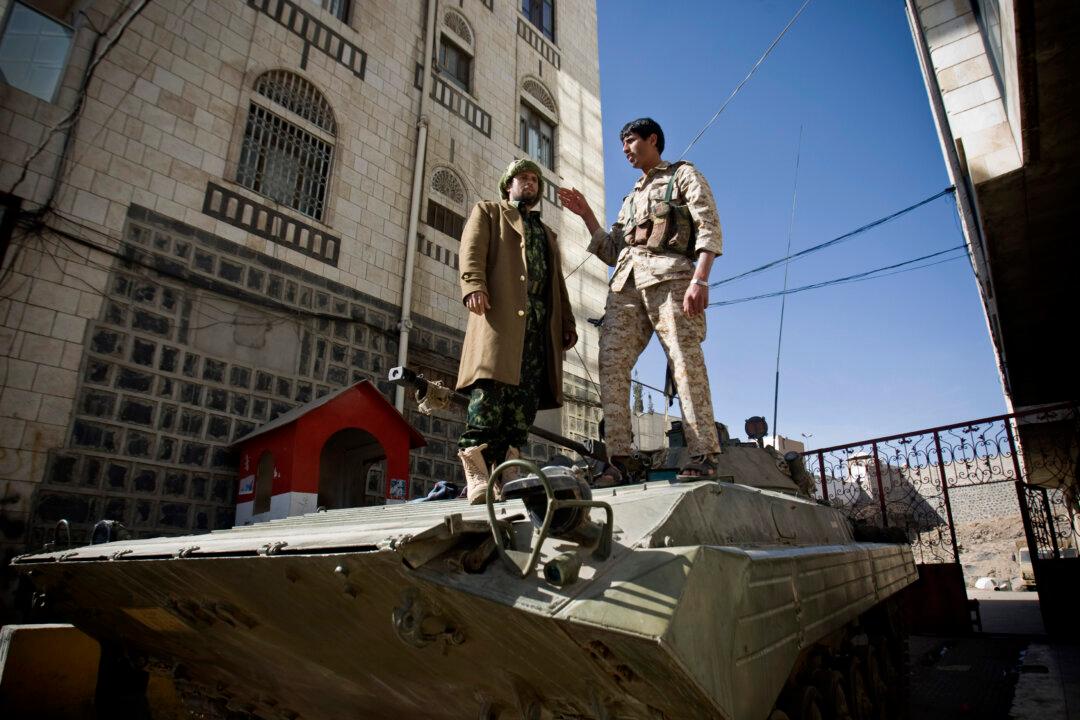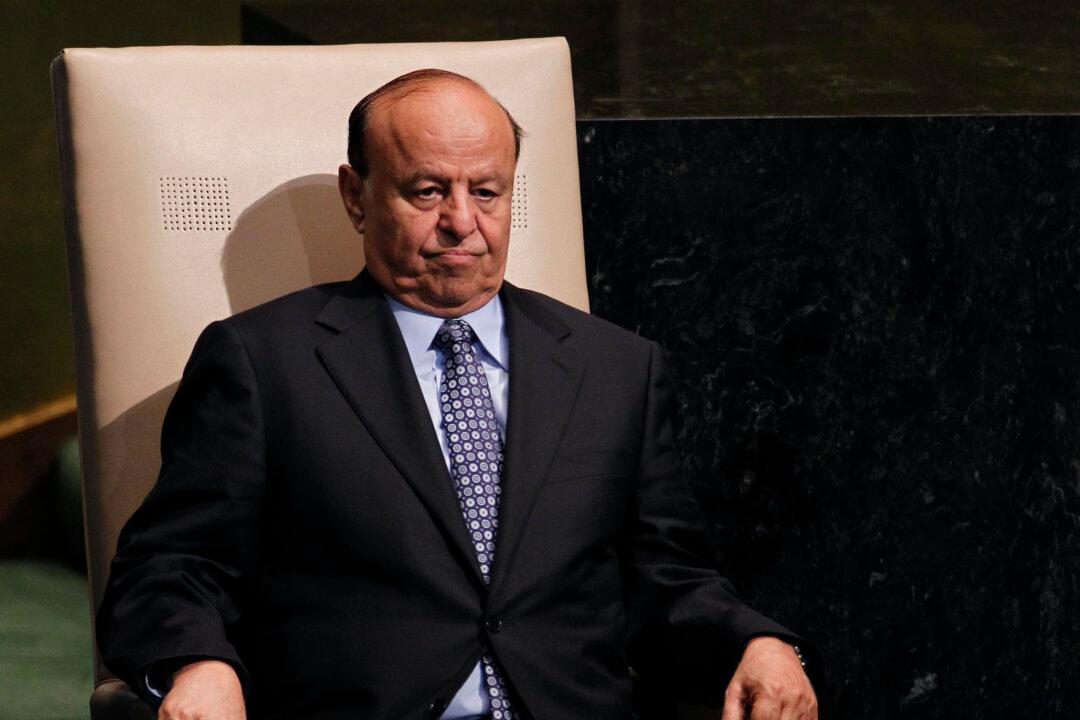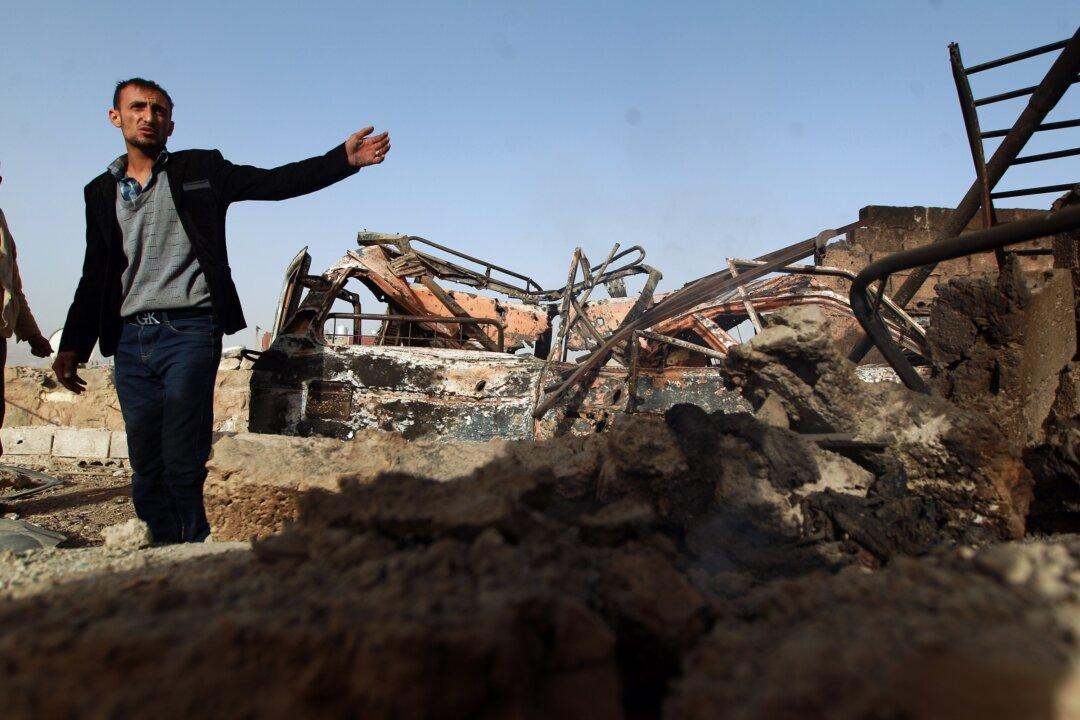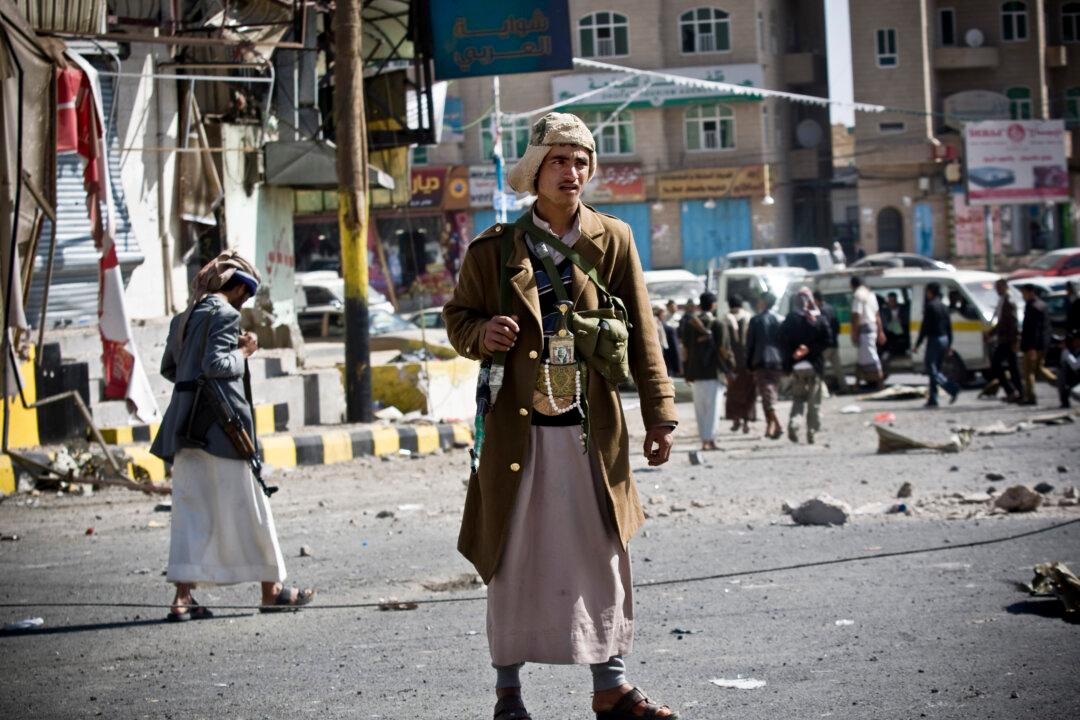WASHINGTON—Al-Qaeda’s branch in Yemen threatened an American hostage who was the target of a rescue attempt by U.S. special forces last month, warning Washington in a video released Thursday not to try again, and giving it three days to meet unspecified demands.
“My life is in danger,” photojournalist Luke Somers says in the footage, which appeared to mimic hostage videos released by al-Qaeda’s rival, the Islamic State group.
It was the first word from the 33-year-old since he was snatched from the streets of Sanaa more than a year ago. He had been working for nearly three years in the impoverished Arab nation, “living as a normal Yemeni,” friends and colleagues told The Associated Press.
A statement by Pentagon press secretary Rear Adm. John Kirby acknowledged for the first time Thursday that a raid last month had sought to rescue Somers but that he turned out not to be at the site.
White House spokeswoman Bernadette Meehan also said Thursday that President Barack Obama had authorized a rescue operation to free Somers and other hostages but “regrettably, Luke was not present.”
In the three-minute video, Somers appears somber and gives a brief statement in English, asking for help.
“It’s now been well over a year since I’ve been kidnapped in Sanaa,” Somers says. “Basically, I’m looking for any help that can get me out of this situation. I’m certain that my life is in danger. So as I sit here now, I ask, if anything can be done, please let it be done. Thank you very much.”
Also speaking in the video, a local al-Qaeda commander, Nasser bin Ali al-Ansi, denounced American “crimes” against the Muslim world, including U.S.-led airstrikes against the Islamic State group in Iraq and Syria.
He also condemned the rescue attempt, calling it a “foolish action” and warned against any more such “stupidities.” He acknowledged that an “elite group of mujahedeen,” or holy warriors, were killed in the operation.
Al-Ansi gave the U.S. three days to meet al-Qaeda’s demands or “otherwise, the American hostage held by us will meet his inevitable fate.” He did not elaborate or explicitly say Somers would be killed.
Al-Ansi also did not specify the group’s demands but said Washington is “aware” of them.
Kirby did not elaborate on the joint U.S-Yemeni operation to free Somers, saying details remained classified. However, officials said at the time the raid by U.S. special forces and Yemeni troops targeted a remote al-Qaeda safe haven in a desert region near the Saudi border. Eight captives — including Yemenis, a Saudi and an Ethiopian — were freed. Somers, a Briton and four others had been moved days earlier.
Somers was kidnapped in September 2013 on the streets of the Yemeni capital, Sanaa, as he left a supermarket, according to Fakhri al-Arshi, chief editor of the newspaper National Yemen. Somers worked at the paper as a copy editor for a period after working as a freelance photographer during the 2011 uprising in Yemen. His last stint was editing and reviewing English material for a government-led dialogue among Yemen’s political factions aimed at drafting a blueprint for a new constitution.
“He was living as a normal Yemeni, very friendly, had no enemies,” al-Arshi said. “But because he is one of few Americans and Westerners here, he was a target.”
Bill Roggio, of the terrorism analysis center the Long War Journal, said he believes the al-Qaeda offshoot — known as al-Qaeda in the Arabian Peninsula, or AQAP — put out the video in reaction to last month’s rescue operation.
The group, considered by the U.S. to be the world’s most dangerous branch of the terror network, “is aware that the U.S. is now searching for the hostages and it is time for it to play its cards and extract whatever it can for them,” he said. “If the U.S. doesn’t pay the ransom, AQAP will have to make it clear there is a price to pay.”
Al-Qaeda experts and local Yemeni tribal figures suggested that by releasing the video now, al-Qaeda may be trying to find a third party, such as Qatar, to work out a deal for Somer’s release as it did for at least one previous Westerner. That could mean the militant group is looking to secure a ransom or swap, and the video was a way to put pressure.
However, the video also marked an ominous shift. In other recent abductions, al-Qaeda in Yemen did not make such public threats against its captives, which suggests the group could now be mimicking the Islamic State group, its competitor among militant circles that has been trying to make inroads in Yemen and siphon away supporters.
That raises the prospect that al-Qaeda is moving toward increasingly brutal tactics in order to shore up its internal support in the rivalry with the Islamic State, which has beheaded several American and British hostages, as well as numerous Iraqi and Syrian soldiers, in their sweep across those two countries.
The al-Qaeda network was notorious for beheadings in the past — most notably of American journalist Daniel Pearl in Pakistan and several Americans and a Briton in Iraq in 2004. But in recent years, even while continuing suicide bombings and other attacks, it has stayed away from more bloodthirsty acts.
Al-Qaeda is believed to be holding at least three other foreign hostages — a Briton, a South African and a third foreigner thought to be Turkish. In February 2013, a Swiss researcher was released after a year in al-Qaeda captivity following months of Qatari mediation.
A Yemeni hostage who had been held captive with Somers was found dead late Wednesday in Hadramawt, the province where the U.S.-Yemeni rescue attempt took place. The captive, Rashid al-Habshi, had appeared in an earlier al-Qaeda video making a confession that he had helped U.S. drone strikes.
Somers, a 2007 graduate of Beloit College in Wisconsin, was described by a former English professor, Shawn Gillen, as someone who “wanted to be in places where world events were happening.”
“He really wanted to understand the world, which is why this is devastating to hear,” he said.
Al-Qaeda’s Yemen branch group has been at the forefront of a propaganda war with the Islamic State group, whose leader Abu Bakr al-Baghdadi declared a “caliphate” in areas of Iraq and Syria under his control and has spoken of expanding it to other countries.
Al-Qaeda rejects the unilateral declaration and has criticized the group for its methods. But it faces stiff competition, with many extremists around the Middle East drawn by al-Baghdadi’s dramatic successes.
Al-Qaeda’s Yemen branch — led by Nasser al-Wahishi, a onetime close associate to the network’s former leader Osama bin Laden — has so far kept its cohesion and has pushed back against Islamic State attempts to gain ground in Yemen.
Last month, al-Qaeda in Yemen’s top cleric, Sheikh Harith al-Nadhari, warned against expansionism, saying it threatens to drive a wedge among jihadis. “They announced the expansion of their caliphate in a number of countries in which they have no mandate,” al-Nadhari said.
From The Associated Press. AP writer Todd Richmond in Madison, Wisconsin, contributed to this report.
